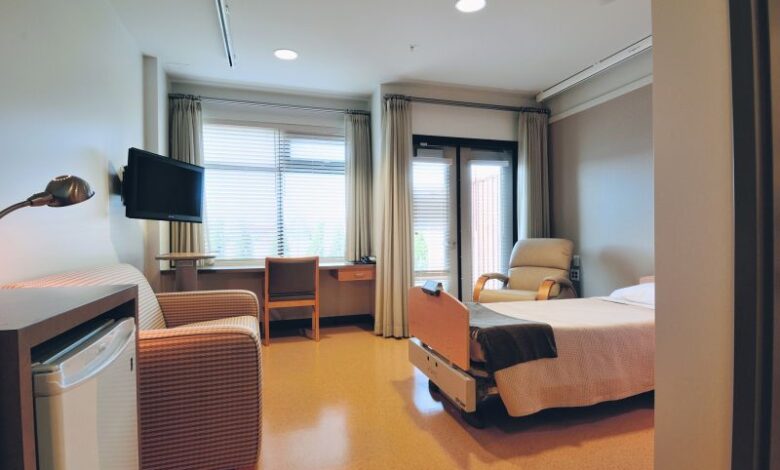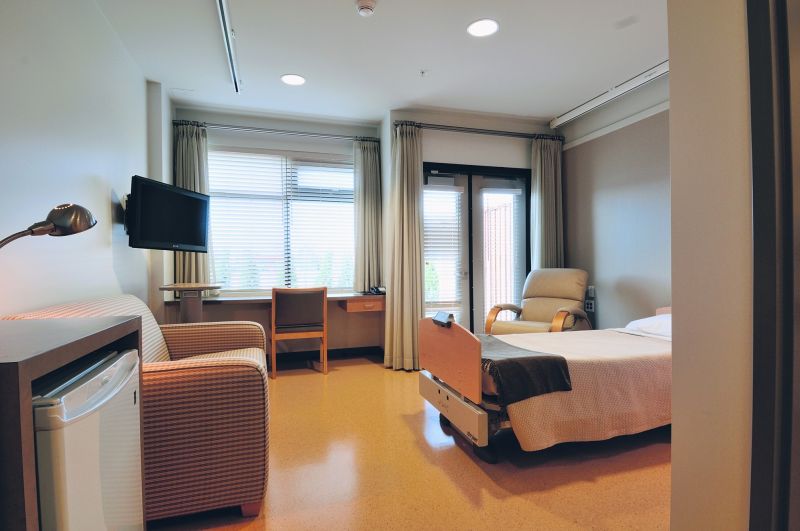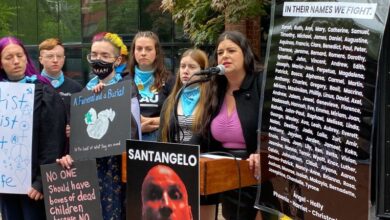Hospice leader in Canada promotes anti-euthanasia film: ‘My life’s work’

 A room at the former hospice facility run by the Delta Hospice Society in Delta, British Columbia, Canada. The Canadian government in 2020 ended a $ 1.5 million funding contract with Delta Hospice over the organization’s refusal to implement medical assistance in dying (MAID). Then British Columbian Fraser Health Authority terminated the property lease with Delta Hospice, which shut the facility down. / Credit: Photo courtesy of Delta Hospice Society
A room at the former hospice facility run by the Delta Hospice Society in Delta, British Columbia, Canada. The Canadian government in 2020 ended a $ 1.5 million funding contract with Delta Hospice over the organization’s refusal to implement medical assistance in dying (MAID). Then British Columbian Fraser Health Authority terminated the property lease with Delta Hospice, which shut the facility down. / Credit: Photo courtesy of Delta Hospice Society CNA Staff, Apr 6, 2024 / 06:00 am (CNA).
A Canadian hospice leader is working to promote a new anti-euthanasia film to help raise awareness of what she calls the “predatory doctor-assisted suicide regime” of the Canadian government.
Angelina Ireland is the president of Delta Hospice Society in Delta, British Columbia. The organization, founded in 1991, is “dedicated to helping families and individuals experiencing life-threatening diagnoses, advanced illness, or bereavement” by offering palliative care and other end-of-life services.
Ireland herself is featured in the recently released film “The Story of Euthanasia,” a 43-minute documentary made by Trinitas that explores the “philosophical belief, moral conflict, and social impact concerning legalization of euthanasia and assisted suicide.” Also featured in the film is Dr. Will Johnston, a family physician from Vancouver, and Abbot Igumen Tryphon of All-Merciful Saviour Orthodox Monastery in Washington state.
“Medical assistance in dying” (MAID) became legal in Canada in 2016.
Ireland told CNA in an interview that the assisted suicide law directly affected Delta Hospice’s operations.
“We refused to participate [in MAID] because we’re a palliative care organization, and palliative care does nothing to hasten death,” she said. “We take care of people. Palliative care is from diagnosis to natural end. So we refuse to start killing our patients in the hospice.”
The government in 2020 ended a $ 1.5 million funding contract with Delta Hospice over the organization’s refusal to help kill its patients, “which was fine,” Ireland said.
Yet the British Columbian Fraser Health Authority further terminated its property lease with Delta Hospice, which Ireland said effectively evicted the organization.
“Our buildings sort of got classified as affixtures to the land,” she said. “The government evicted us. We lost about $ 8 million. We got no compensation for that expropriation. We were then left out of the business of providing palliative care.”
On its website, Delta Hospice says its palliative services “still continue virtually, by telephone, and in person.”
Ireland, meanwhile, hopes “The Story of Euthanasia,” produced by two local filmmakers, will show people the realities of Canada’s MAID regime. Ireland said she has already made visits to numerous venues to screen the film and discuss it.
“It could be in a parish hall, it could be in a church — any kind of community center that wants to show the film,” she said. “I will come and talk to you about our experiences around doctor-assisted suicide. I’ll go anywhere,” she said, noting that she is willing to visit the United States as well.
“MAID is very predatory,” Ireland said. “It’s going after sick, vulnerable, aged people. All we can do now is create awareness of what’s happening to us.”
Her experiences with Delta Hospice have shown her that “there’s very little room at all for dissent around this medical regime.” Ireland herself suffered from cancer several years ago and said she is familiar with the difficulties surrounding serious and terminal diagnoses.
“I’m not a doctor or a nurse,” she said. “I’m sitting on the other side of the aisle as a person who has been particularly vulnerable to this medical regime.”
“I’ve made it my life’s work to try and pass this message about what it really means to accept this idea that the state can kill people, how quickly it gets out of hand, and what we lose in terms of our humanity when it becomes so easy just to kill.”
More than 40,000 Canadians have used the law to kill themselves since it became legal to do so in 2016. Ireland said that the branding of the procedure — ”medical assistance in dying (MAID)” — is meant to obscure the brutal reality of doctors helping to end the lives of their patients.
“They make it sound all cozy and nonthreatening,” she said. “But they’re killing people here in Canada.”





